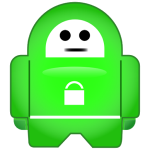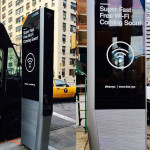Do You Have a Password Strategy?
Why You Need a VPN (Virtual Private Network)
Your internet connection may not be as safe as you’d like to think. If you’re connected to a public Wi-Fi network (coffee shops like Starbucks, hotels, airports, public parks, etc.), it’s possible that another person on the same network could be sneaking a look at your internet traffic.
Your iPhone or Android mobile device can’t protect your data as it travels the internet. Using a VPN keeps your information safe and private, even when you’re connected through an insecure Wi-Fi hotspot.
A Virtual Private Network (VPN) is a network technology that creates a secure network connection over a public network such as the Internet.
To read a complete review from PCMag of all the best VPNs for your mobile phones, click HERE.
How to Safely Access The Internet On The Road
 You probably take for granted that no one else is able to see when you are using the Internet. A Virtual Privste Network (VPN) allows you to create a secure connection as a shield for your browsing activity from others on public Wi-Fi, and more. VPN is a technology that creates an encrypted connection over a less secure network. An example is an unsecured Wi-Fi network that is used by hotels, airport terminals, hotels, coffee shops, and other free Wi-Fi areas.
You probably take for granted that no one else is able to see when you are using the Internet. A Virtual Privste Network (VPN) allows you to create a secure connection as a shield for your browsing activity from others on public Wi-Fi, and more. VPN is a technology that creates an encrypted connection over a less secure network. An example is an unsecured Wi-Fi network that is used by hotels, airport terminals, hotels, coffee shops, and other free Wi-Fi areas.
The protection provided by a VPN offers many advantages. It prevents anyone on the same Wi-Fi hotspot (or anywhere else) from intercepting your Web traffic. This is especially handy for travelers and for those using a public Wi-Fi network. VPNs also cloak your computer’s actual IP address, making it harder for advertisers (or spies and hackers) to track you online
Over 100 million Americans have their personal information placed at risk of identity theft every year. One of the major reasons of identity fraud is a result of entering personal information such as user names and passwords, credit cards purchases on unsecured Wi-Fi locations.
How to Minimize Your Communication Costs When Abroad
 Planning an overseas trip and want to be able to keep in touch with family, friends, and business associates back in the US without incurring large telephone and texting charges? Having an “international” smartphone doesn’t mean you can automatically use it to make and receive calls as if you were still at home. Just last week I received a call from a client who was appalled that he received a bill from his mobile phone carrier for $1200 after returning from a ten day trip to Europe.
Planning an overseas trip and want to be able to keep in touch with family, friends, and business associates back in the US without incurring large telephone and texting charges? Having an “international” smartphone doesn’t mean you can automatically use it to make and receive calls as if you were still at home. Just last week I received a call from a client who was appalled that he received a bill from his mobile phone carrier for $1200 after returning from a ten day trip to Europe.
I have written many times that it’s impossible to recommend a computer, program, and service that fits all. The same is true regarding a communication plan. Here’s a list of some of the things that must be considered before selecting the best strategy to manage your communication costs.
– Do you have an international phone?
– Where will you be traveling to?
– How long will you be away?
– What will be your primary means of communication (phone, text, e-mail)?
– How important will it be for you to access information (using your data plan) such as news, social networking, etc.?
– Will your hotel/residence have Internet access, and is there a cost for it?
– Will you have access to wi-fi?
I have written a number of times about the different ways of using your phone overseas at no cost. I have suggested you look at Viber, WhatsApp, MagicJack, and Skype. All have the ability to communicate for free from anywhere you can access the Internet through a wireless connection.
With many smartphones, you can purchase a simcard in many countries that will fit in the side of your phone, allowing you to use a local number; thereby, reducing the cost of each call.
However, each of the major mobile phone providers (Verizon, AT&T, Sprint, T-Mobile) offer international plans that, for a fee, will substantially reduce, and in several cases, let you use your phone as if you were in the US. For example, for either a daily or monthly fee, Verizon Wireless lets you use your phone in many parts of the world as if you were still home.
Below is a list of the major mobile providers. Click on your provider, and you will be able to review the different plans available to you.
Verizon International Calling Plans
AT&T International Calling Plans
Sprint International Calling Plans
T-Mobile International Calling Plans
Keep in mind, the plan you select is based on where you will be travelling, the length of your trip, and the availability of wi-fi.
Lastly, you can always rent an international phone here in the US from a company such as Cellhire.
The important think to remember is there is no need to be out of touch or pay exorbitant prices while travelling abroad.
Super Speed Free Wifi Throughout New York City?
 Welcome to the future of public Wi-Fi. It will soon spread well beyond the City That Never Sleeps, and it’s unlike the isolated free Wi-Fi hot spots in airports, coffee shops and hotels, best known for slow speeds and posing serious risks to your digital security. This is fast, it’s ubiquitous and it’s relatively more secure
Welcome to the future of public Wi-Fi. It will soon spread well beyond the City That Never Sleeps, and it’s unlike the isolated free Wi-Fi hot spots in airports, coffee shops and hotels, best known for slow speeds and posing serious risks to your digital security. This is fast, it’s ubiquitous and it’s relatively more secure
The 9.5-foot-tall rectangles, which are replacing the city’s pay phones, feature USB outlets for charging your devices (actual charger not included), city maps, 911 emergency access, and video calls to anywhere in the country. And, of course, wi-fi.
To get the most out of the updated public Wi-Fi in New York and elsewhere, there’s some new lingo to learn: Passpoint, which is sometimes referred to as Hotspot 2.0
The technology allows a Wi-Fi hot spot to work like a cellphone tower. Your phone or laptop’s Wi-Fi connection can seamlessly switch from one hot spot to the next as you move around—no need to repeatedly log in. LinkNYC is a first-of-its-kind communications network that will replace over 7,500 pay phones across the five boroughs with new structures called LinksOn. It means walking out of your apartment and being able to walk for blocks and blocks.
To read the complete article by Joanna Stern in the Wall Street Journal, CLICK HERE
CLICK HERE read an earlier article by Bryan Lufkin
